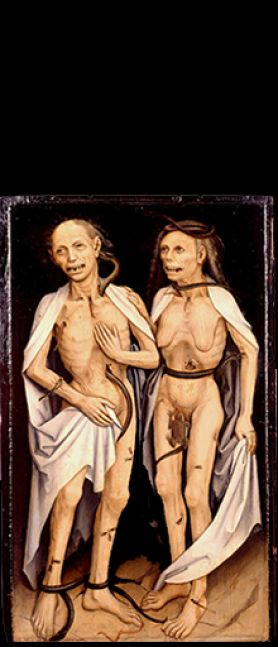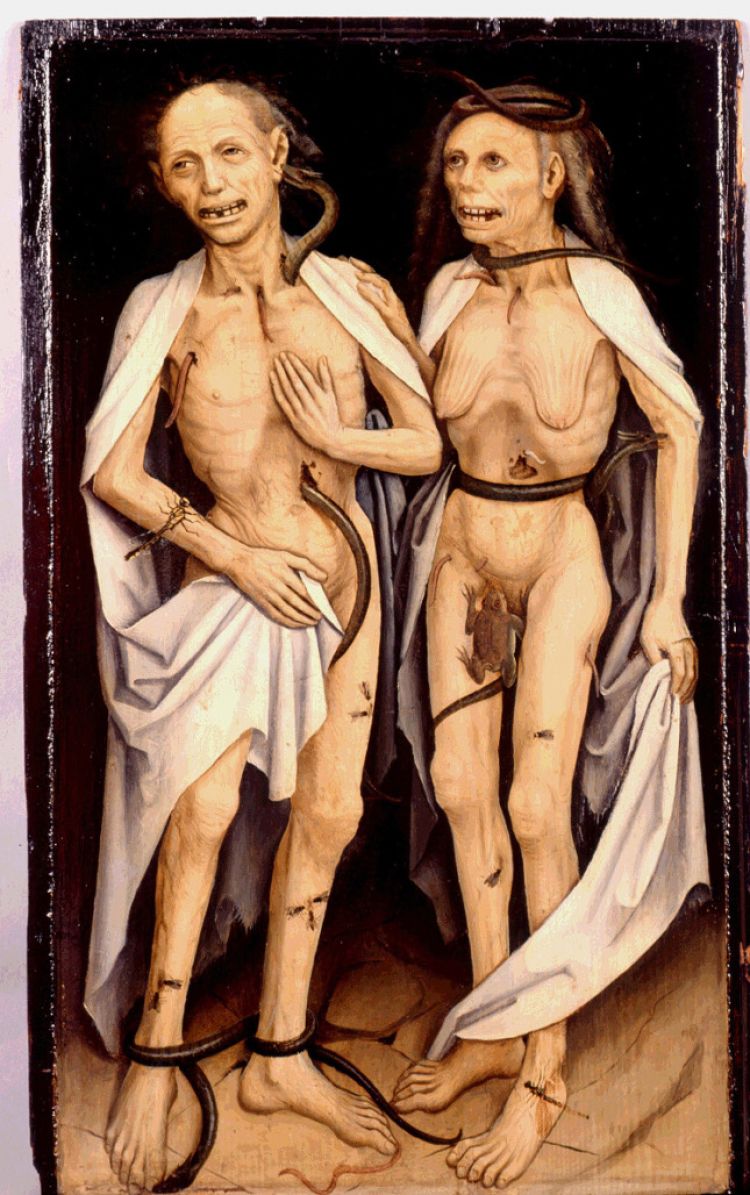Deceased Lovers

The panel painting of the Deceased Lovers formerly formed the reverse of the Bridal Couple now owned by the Cleveland Museum in the United States. These macabre double portraits, which first appeared in the mid-15th century, were a distinct genre. Intended for a domestic setting, they were an aid to private devotions and meditation on the vanity of earthly things. This work is part of the Germanic tradition of representing death. It was quite possibly inspired by an etching of The Young Man and Death by the Master of the Book of Reason – one of the great anonymous masters of German engraving in the second half of the 15th century. Once wrongly ascribed to the young Mathias Grünewald, it is now thought to be the work of an artist from the southern imperial city of Ulm in Swabia. One is struck particularly by its brutal realism and the paradoxical vigour of the emaciated, vermin-ridden corpses – a chilling reminder of the fleetingness of youth, beauty.
